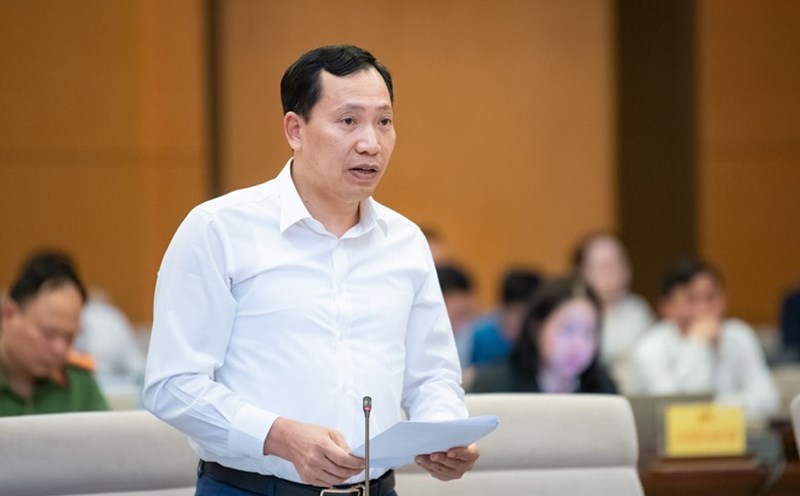Electric vehicle transition needs to be faster and stronger
Vietnam is facing serious challenges in reducing carbon emissions, as transportation remains the largest polluting sector. Given this reality, the transition to green transportation, especially electric vehicles, is not only an urgent requirement but also a responsibility for the country’s sustainable development future.
Recently, at a meeting to discuss policies to encourage the development of green energy vehicles, Party Central Committee member and Deputy Prime Minister Tran Hong Ha emphasized that switching to electric vehicles to improve the environment is the state's responsibility to the people and must take specific and timely actions.
Deputy Minister of Transport Le Anh Tuan shared that the ministry has developed and issued standards and regulations for controlling emissions for vehicles using gasoline and diesel. The ministry also encourages investment in vehicles using electricity and green fuels. This is identified as an effective solution to reduce greenhouse gas emissions.
However, cost remains a major barrier. Green finance is not yet easily accessible, while the cost of electricity for charging stations remains unreasonable. Currently, the Ministry of Transport is supporting Hanoi and Ho Chi Minh City to identify low-emission zones, where only zero-emission or low-emission vehicles are allowed to operate.
Movement from the base
Currently, major cities are taking the first steps in converting to electric vehicles. Mr. Le Hoan - Deputy Director of the Ho Chi Minh City Public Transport Management Center - said that the city has built a roadmap so that by 2030, 100% of buses in Ho Chi Minh City will use green energy.
This roadmap will be implemented in several phases. The phase from 2025-2029 will prioritize converting buses to electric vehicles. By 2030, all buses will use green energy. The city also proposes to support 50% of loan interest for businesses investing in buses using green energy and electric charging stations.
Similarly, Hanoi also aims to have 100% of buses using green energy by 2035. Mr. Thai Ho Phuong - Director of the Hanoi Public Transport Management and Operation Center - said that the city is implementing appropriate conversion scenarios. Currently, Hanoi has 1,905 subsidized buses, of which 281 use clean energy. Electric bus routes in Hanoi have contributed to reducing more than 36,000 tons of CO2 annually.
Despite the initial steps, the electric vehicle conversion process in localities still faces many difficulties in mobilizing financial resources from both the state budget and socialized sources. Enterprises need support in terms of lending mechanisms, preferential interest rates and protection policies from the Government. This will help reduce the financial burden and encourage enterprises to participate in the conversion process.
Comparison with countries in the region
In Southeast Asia, several countries have made significant progress in the transition to electric vehicles. Thailand, for example, aims to have 30% of its vehicles on the road be electric by 2030, with strong support policies such as reducing import tax on electric vehicles to 0% and special consumption tax incentives.
According to The Jakarta Post, in Indonesia, the government aims to produce 400,000 electric vehicles per year by 2025 and become a global hub for electric vehicle battery production.The country has developed major incentive policies, including subsidies for electric vehicle purchases and VAT exemptions for domestic electric vehicle manufacturers.
Switching to electric vehicles is not only an inevitable trend to ensure a green environment but also a commitment to a sustainable future.
To achieve this goal, close coordination between ministries, sectors, localities and businesses is needed. The government needs to step up propaganda about the benefits of green transportation, while developing a clear roadmap and timely support policies. Above all, people need to change their awareness and behavior and play a pioneering role in choosing environmentally friendly means of transportation.











